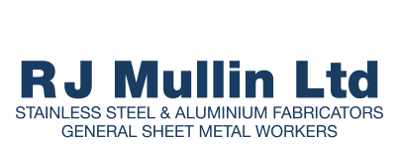Frequently Asked Questions
Q: What can I do to clean & maintain my stainless steel?
A: Bench Tops/Sinks – Wash surface with a soft cloth, and diluted cream cleanser. Rinse and dry after every use. Drying is very important to eliminate any film build-up that may develop from hard water deposits.
Refrigerator door, dishwasher and range hood panels etc – wipe surface with a soft cloth using a mild detergent and warm water. Always wipe in the direction of the grain, and remove all traces of detergent. Dry with a soft cloth.
Boat Fittings – all fittings should be frequently washed down with fresh water to remove salt deposits from the surface of the stainless steel. If the salt deposits are left to form corrosion on the surface of the steel this may cause pitting which will be difficult to remove.
- DO NOT use Abrasive Cleaners
- DO NOT use Steel Wool
- DO NOT use Brasso (it may turn your sink black)
- DO NOT let Bleach sit on the surface for long periods of time
- DO NOT use Silver Dip cleaners (they may turn your sink black)
Some products whose labels identify them as a “stainless steel cleaner” contain chlorides or acids that can cause stainless steel corrosion. It is especially important to avoid any cleaner that contains hydrochloric acid (also called Muriatic acid). Other “stainless steel cleaners” that contain coarse abrasives will scratch the finish.
Q: What can I use to prevent scratching of my stainless steel sink?
A: Perforated rubber or plastic mats in the sink will cut down on scratching and marking by pans and tableware. Wash with a solution of hand dish washing liquid detergent and water; rinse and polish dry with soft cloth or paper towel. Never use scouring powders or steel wool as they will scratch stainless steel.
Q. Is stainless steel durable?
A: Stainless steel offers the ultimate in durability. It is resistant to heat and cold and will normally last for ‘a lifetime’ — meaning literally, decades. This means that, over the lifetime of the product, its cost is very low. Also, due to this durability, it is possible for the stainless steel surface to remain totally hygienic over its lifetime.
Q. Is stainless steel expensive?
A: Stainless steel is not expensive when the lifetime cost of the product is examined. Typically, the stainless steel product will outlast the alternative many times over. Low maintenance costs (either in the form of cost of repair or cost or replacement) means that stainless steel is very economical over time.
Q. Is stainless steel hygienic?
A: Stainless steel offers a totally hygienic surface which is the reason why it is standard to commercial kitchens and other environments where hygiene is paramount.
Q. What is stainless steel?
A: Stainless steel, which was first developed in Sweden, is a common name for chromium-iron alloys containing at least 12% chromium. Such alloys develop a chromium rich oxide film which give the steel its anti-corrosive properties. The type of stainless steel used in kitchens and bathrooms is ‘Austenitic’, which also contains at least 8% nickel. Where higher corrosion resistance is required—for example, in laboratories—molybdenum is also added.
Refer to British Stainless Steel Association http://www.bssa.org.uk/faq.php for generic questions about stainless steel.
